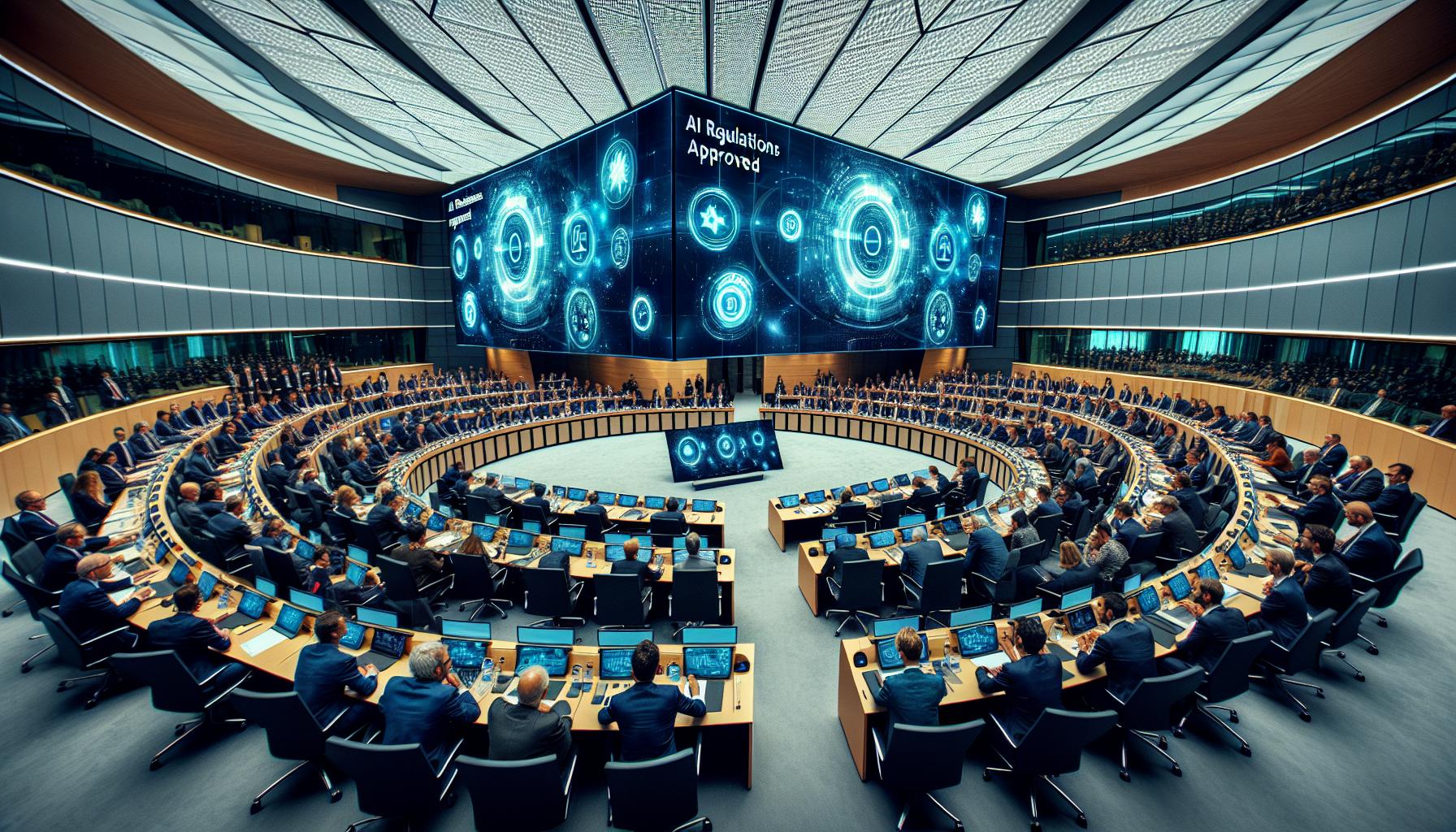The European Union’s 27 member states unanimously approve landmark rules on AI
The European Union’s 27 member states have unanimously approved groundbreaking rules on reining in artificial intelligence (AI). After tough negotiations, the EU states and lawmakers reached a consensus on the draft rules back in December, which were then given the final approval during a meeting in Brussels on Friday. This marks a significant milestone in the EU’s efforts to regulate AI and ensure a balance between innovation and safety.
The Journey towards AI Regulation in the EU
Brussels first proposed an AI law in 2021 but faced challenges in finalizing the draft text. The explosive growth of the chatbot ChatGPT raised concerns among some countries, including France and Germany, leading to additional discussions on the contents of the law. However, after addressing these concerns, EU ambassadors were able to sign off on the final compromise text, paving the way for the law’s implementation.
A Historical Achievement for AI Regulation
The approval of the AI law by EU member states is being hailed as a historical, world-first achievement. Thierry Breton, the EU’s top tech enforcer, emphasizes the importance of striking a balance between innovation and safety. The AI Act has received widespread attention and interest, reflecting the growing significance of AI and its potential impact on various industries.
Protecting European AI Start-ups
One of the key objectives of the AI law is to protect AI start-ups in Europe and ensure that the regulations do not hinder their growth. Paris, in particular, has been advocating for measures to nurture and support European AI champions. The law aims to create a conducive environment for innovation while safeguarding against potential risks associated with AI technologies.
ChatGPT and the Advancement of Generative AI
The rapid advancements in AI, exemplified by chatbot ChatGPT, have demonstrated both the potential benefits and risks associated with generative AI. ChatGPT, developed by US-based OpenAI, has shown its ability to generate eloquent essays, poetry, and even pass medical and legal exams. This technology, along with Google’s chatbot Bard, has the power to quickly produce text, images, and audio based on simple commands in everyday language.
The Road Ahead for the AI Law
While the approval by EU member states is a crucial step, the AI law still has several stages to go through before it becomes fully enforceable. The European Parliament is set to vote on the text in March or April, followed by formal approval in May. Some rules will take effect within six months, while other elements will be implemented two years later. The industry remains cautious about the final text, with concerns raised about potential delays in the development and rollout of innovative AI applications in Europe.
Analyst comment
Positive news: EU Member States Approve Landmark Rules on AI
Short analyst assessment: The approval of groundbreaking rules on AI by EU member states is a positive development for the market. It marks a milestone in the EU’s efforts to regulate AI and strike a balance between innovation and safety. However, there are concerns about potential delays in the development and rollout of innovative AI applications in Europe.













